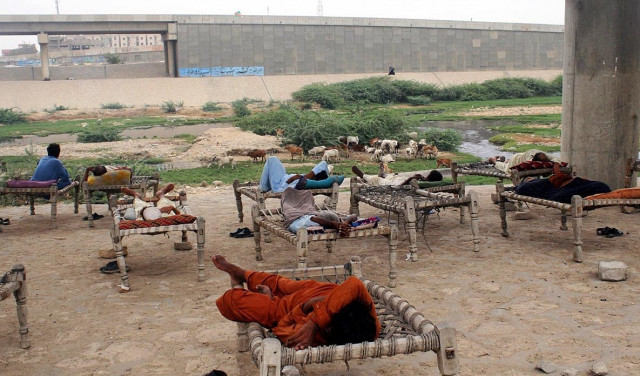Residents displaced by circular railway should be settled where they prefer: Arif Hasan
People displaced must be relocated closer to their livelihoods.

Hassan shed light on the plight of those affected by the Lyari Expressway’s construction.
He was speaking at the inaugural session of the Perween Rahman lecture series at the T2F on Tuesday night. The lecture, ‘Housing situation in Karachi and its repercussions’, discussed the horizontal expansion of the city and how the unplanned growth has affected the lifestyle of its citizens over the years.
Hassan shed light on the plight of those affected by the Lyari Expressway’s construction who were relocated to the city’s suburbs on 80-yard plots. They became financially unstable as their workplaces were less accessible because of the hike in transportation costs, he said. People actually preferred to move into katchi abadis rather than shift to the suburbs because of the transport costs. “Children of these families could not continue their education and around 800 students who were to appear for their matriculation exams failed to do so because they were too far away,” he added.

When asked why these people couldn’t be resettled on nearby vacant government-owned lands, the state responded that the land was too expensive for them and their settlement on these lands would lower the property prices in the adjoining areas, said Hassan.
The booming population density was creating problems in maintaining law and order in the city - with most of the developments contributing to the increasing ethnic divide among the population.
Hassan observed that the housing issues started at the time of partition when around 600,000 people were relocated in Karachi making it a multi-ethnic city. To accommodate these people, various plans were launched such as the one during General Ayub Khan’s tenure when it was decided to displace the people from the centre of the city to areas, such as Landhi, Korangi and New Karachi.
According to him, that period laid the foundations for the ethnic divide in the city as the government failed to fulfill its promises with the people.
The first Pakistan Peoples Party government started regularization of the Katchi Abadis through Malkana Huqooq Programme (ownership rights). In retrospect, he added, the katchi abadis have grown faster while their regularisation process has been relatively slow.
The architect was of the view that the small sizes of homes in these Katchi Abadis were a source of displeasure among their inhabitants who had to share their living space with multiple residents. “On average, there are seven people sharing a room and they also have to make do with a single kitchen and toilet. People in these localities are actually happy when a single family member stays out for the night,” he said.
He also spoke of the latest trend in construction where people with single-storey structures were building multiple levels on top of the houses to rent out the additional flats to tenants. These vertical constructions were a cause of torment to the tenants who could be evacuated by the owner at a moment’s notice. “There are people who have changed 4 to 5 houses in a year,” he said.
Community architect, Sirajuddin, Perween Rahman’s student, Mir Raza Ali and her elder sister, Aquila Ismail, also spoke at the occasion and shared their memories and experiences with her while poet, Azra Abbas, recited her poem on Parween Rahman.
Published in The Express Tribune, June 13th, 2013.



















COMMENTS
Comments are moderated and generally will be posted if they are on-topic and not abusive.
For more information, please see our Comments FAQ